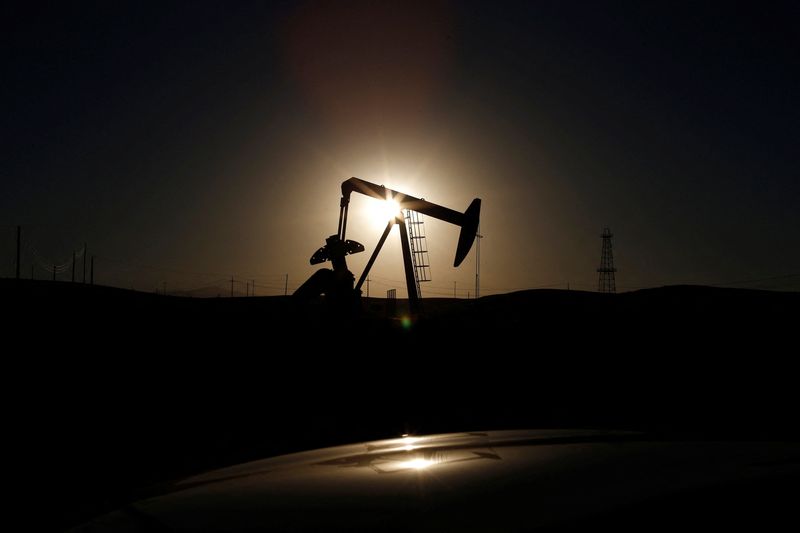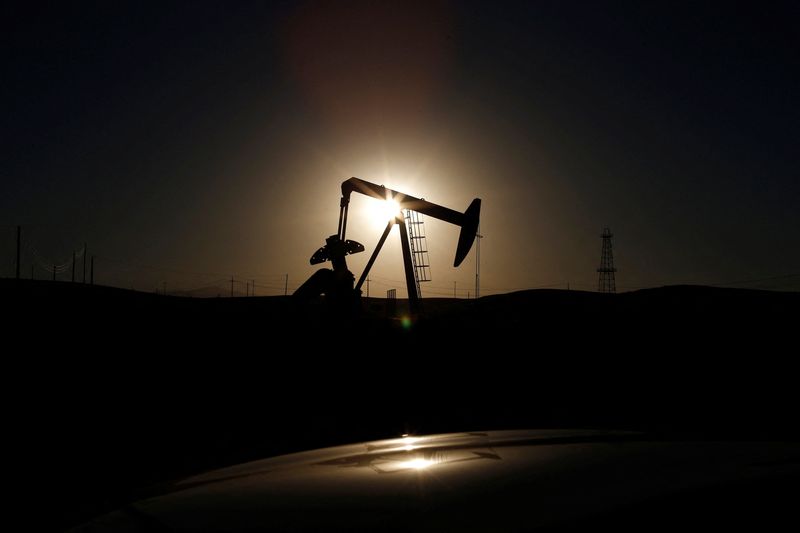
By Georgina McCartney
HOUSTON (Reuters) – Oil prices rose on Thursday as investors priced in stronger U.S. fuel demand and the potential for OPEC+ to delay a planned output increase in December, five days ahead of the U.S. election.
Brent futures rose by 54 cents, or 0.74%, to $73.09 a barrel by 1:09 p.m. EDT. WTI futures were up 51 cents, or 0.74%, at $69.12.
Traders are standing by on the outcome of the U.S. presidential election on Tuesday, anxious to see what a victory by Republican Donald Trump or Democrat Kamala Harris will mean for oil markets.
“The market is trying to figure out the impact of a Harris or Trump administration on oil production, sanctions and prices,” said Andrew Lipow, president of Lipow Oil Associates.
Barring any significant market-moving events in the Middle East over the next five days, trading is likely to be muted as investors await election results before making any big moves, Lipow said.
U.S. gasoline stockpiles fell more than expected to a two-year low in the week ending Oct. 25, the Energy Information Administration said, while crude inventories registered a surprise drawdown as imports slipped. [EIA/S]
“An unexpected drawdown in U.S. crude and product stocks against projected builds provided some uplift for Brent futures this week,” Rystad Energy’s global head of commodity markets for oil, Mukesh Sahdev, said in a note on Thursday.
He noted that the week began with a large selloff, with Brent and WTI futures falling more than 6% on Monday, after Israel showed some restraint in its retaliatory attacks on Iran over the weekend.
The possibility that OPEC+ would delay a planned oil output increase also supported prices on Thursday.
A decision could come as early as next week, Reuters reported. OPEC+ is scheduled to meet on Dec. 1 to decide its next policy steps.

In China, the world’s biggest oil importer, manufacturing activity expanded in October for the first time in six months, suggesting stimulus measures are having an effect.
“Several international events have converged at the turn of the month that could see oil markets in for a bumpy ride in early November,” said Rystad Energy’s Sahdev, citing the U.S. election, continually weak Chinese demand outlook, OPEC+ uncertainty and the war in the Middle East.
This post is originally published on INVESTING.


